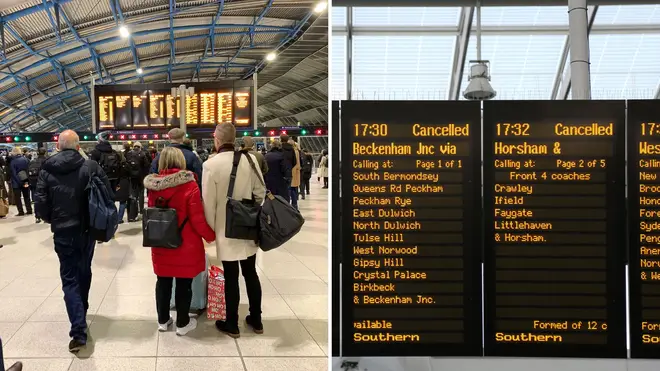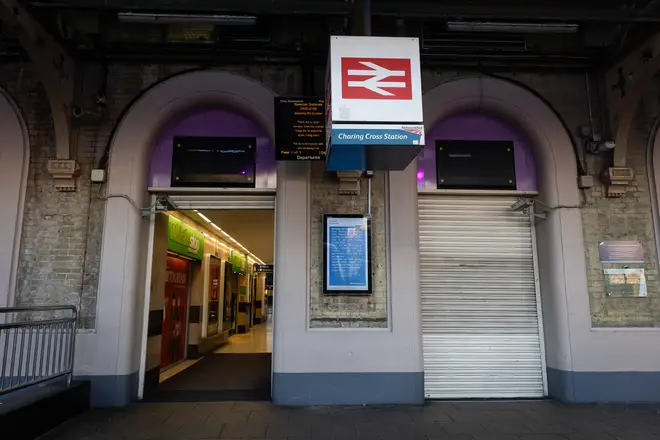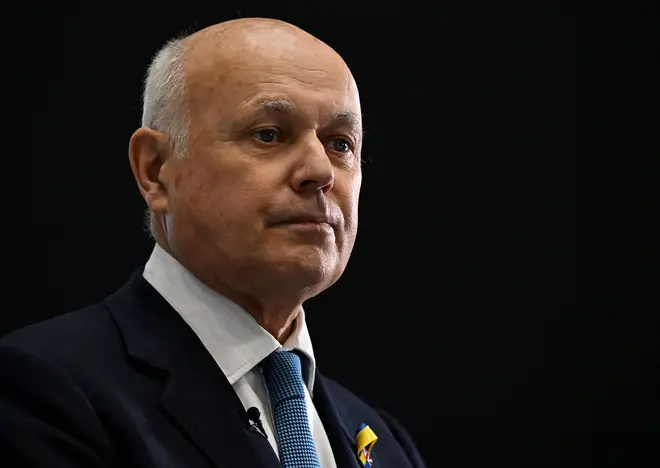
Tom Swarbrick 4pm - 7pm
28 January 2024, 23:14 | Updated: 29 January 2024, 06:00

Rail operators are failing to uphold the new minimum service laws ahead of nine days of train walkouts across Britain.
None of the 18 rail operators set to see strikes starting today will be meeting their legal requirements under new laws.
The Minimum Service Levels rules were implemented by the Government in order to crack down on the disruption that strikes cause - mandating that public services must run at 40% of normal levels on strike days.
Read More: Junior doctors in England to vote on extending mandate for strikes
Tory grandee Sir Iain Duncan Smith MP said rail bosses were partaking in "rank cowardice" in their refusal to use the laws.
The former Tory leader told the Daily Mail: "If the law is there you use it."
Britain’s train network will be plunged into chaos by a fresh series of strikes later starting today.

Drivers’ union Aslef announced a new round of industrial action earlier this month that will affect 17 rail operators across 9 days between Monday January 29 and Tuesday February 6.
Different train operators will be affected on different days.
Number 10 criticised plans for fresh strikes by Aslef train drivers when they were announced.
The Prime Minister's official spokesman said: "This is extremely disappointing. Not least to commuters, who have already been so badly hit by Aslef's decision to continually strike.
"Aslef drivers continue to be paid far above what the average person in the UK receives.
"Rail companies have made a fair and reasonable offer, and we would encourage them to step back from this action."
Aslef general secretary Mick Whelan said today: "We have given the Government every opportunity to come to the table but it has now been a year since we had any contact from the Department for Transport.

"It's clear they do not want to resolve this dispute.
"Many of our members have not had a single penny increase to their pay for half a decade, during which time inflation has soared and, with it, the cost of living.
"Train drivers didn't even ask for an increase during the Covid-19 pandemic when we worked throughout lockdown as key workers, risking our lives, to move goods around the country and to enable NHS and other workers to get to work.
"The Tory government has now tried its old trick of changing the rules. When they couldn't win they brought in minimum service levels legislation.
"But this new law, as we told officials during the consultation period, won't ease industrial strife. It will just make it worse.
"There is, frankly, no excuse for this nonsense. The Government and train operating companies (TOCs) should come to the table with a realistic offer so we can end this dispute and work together to ensure the future of our railways."
Train strikes - which companies are affected on which day?